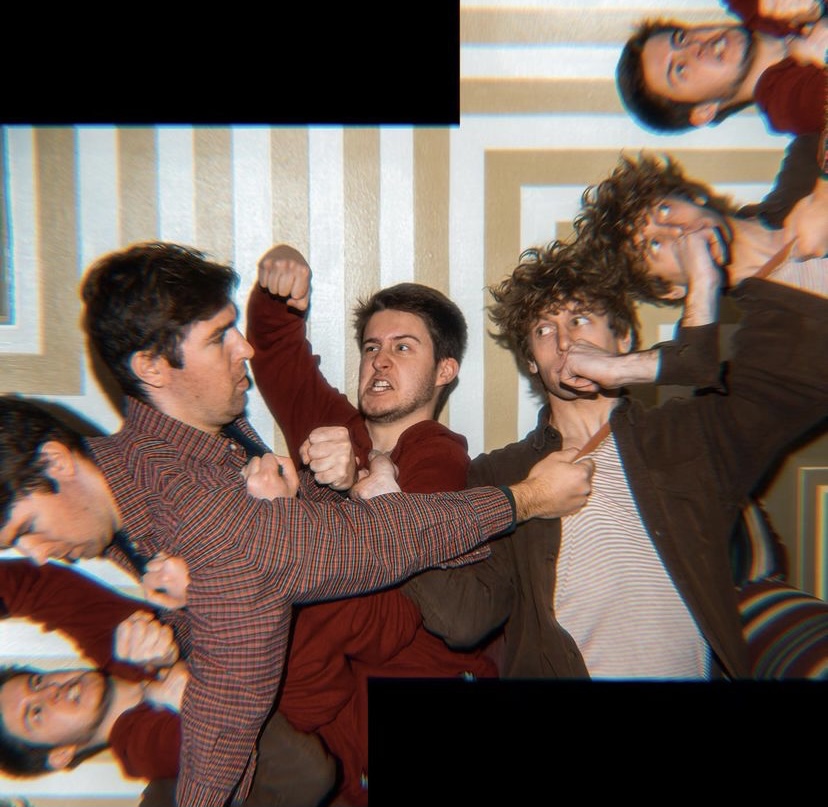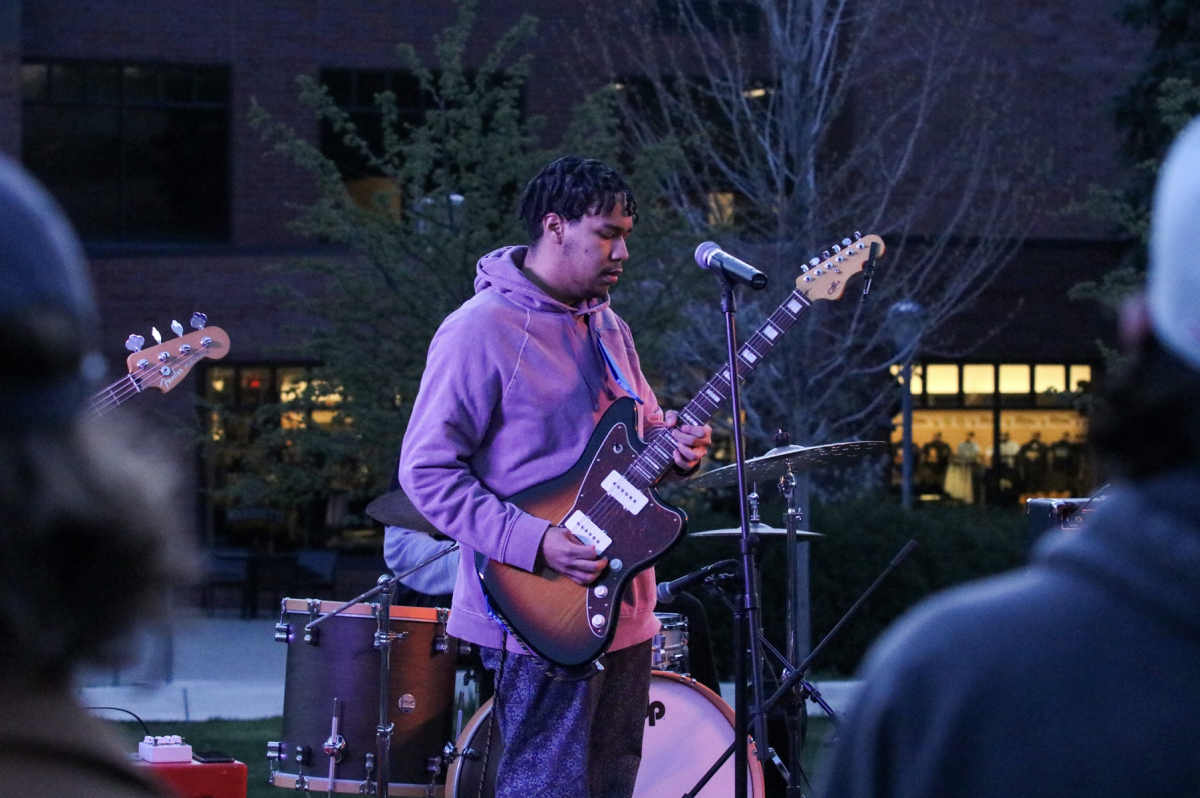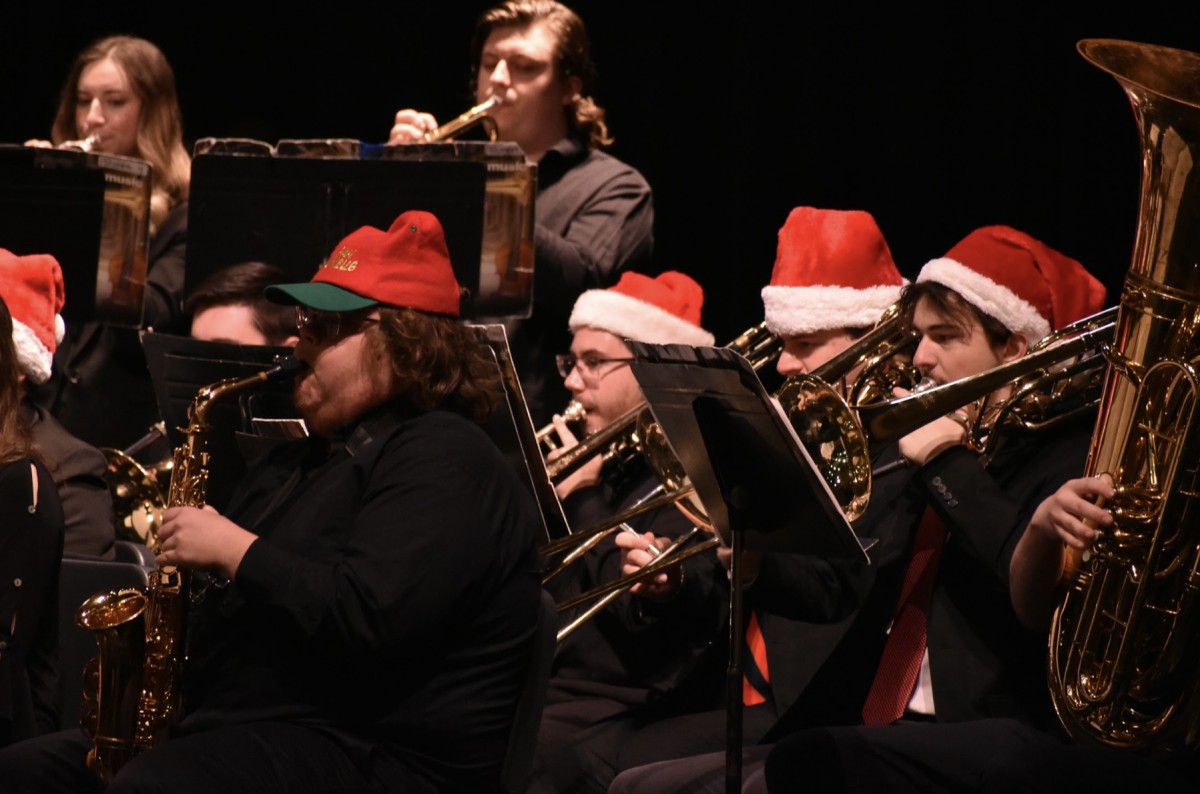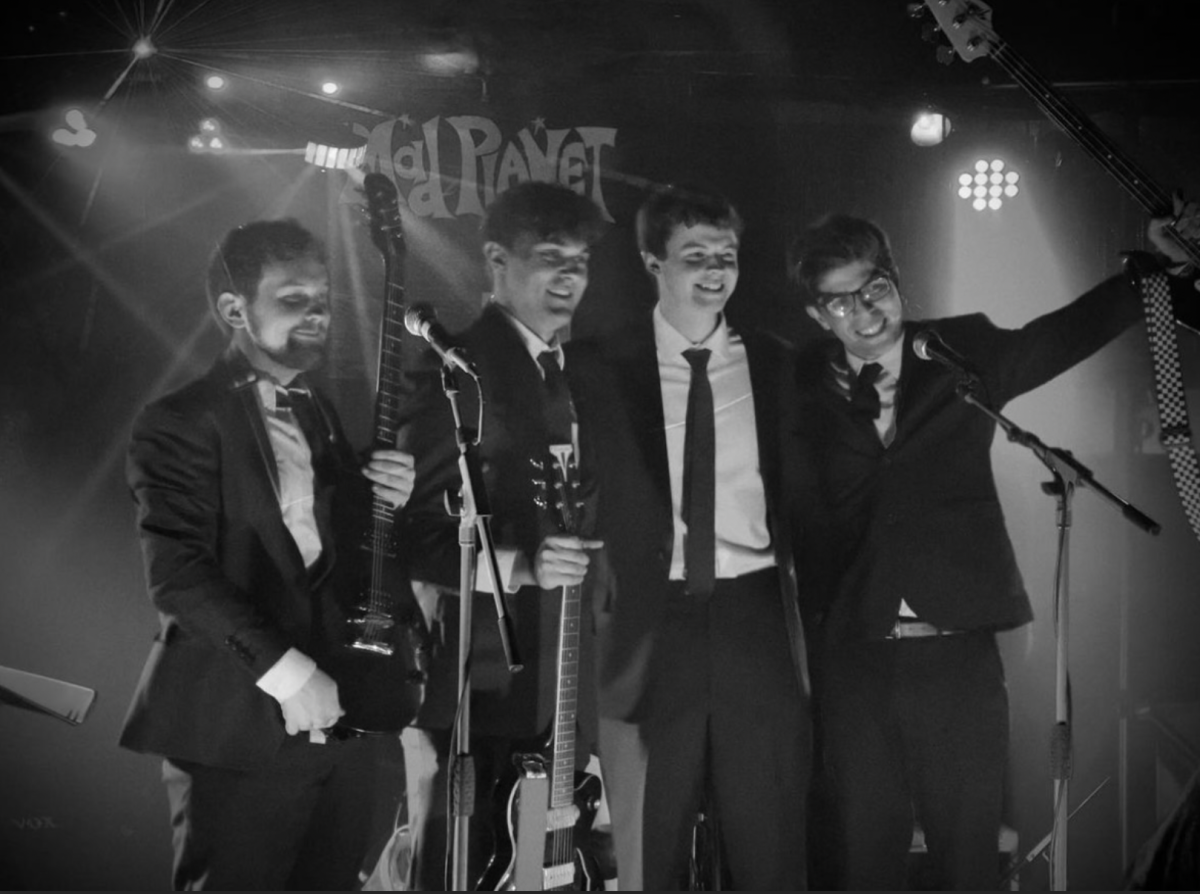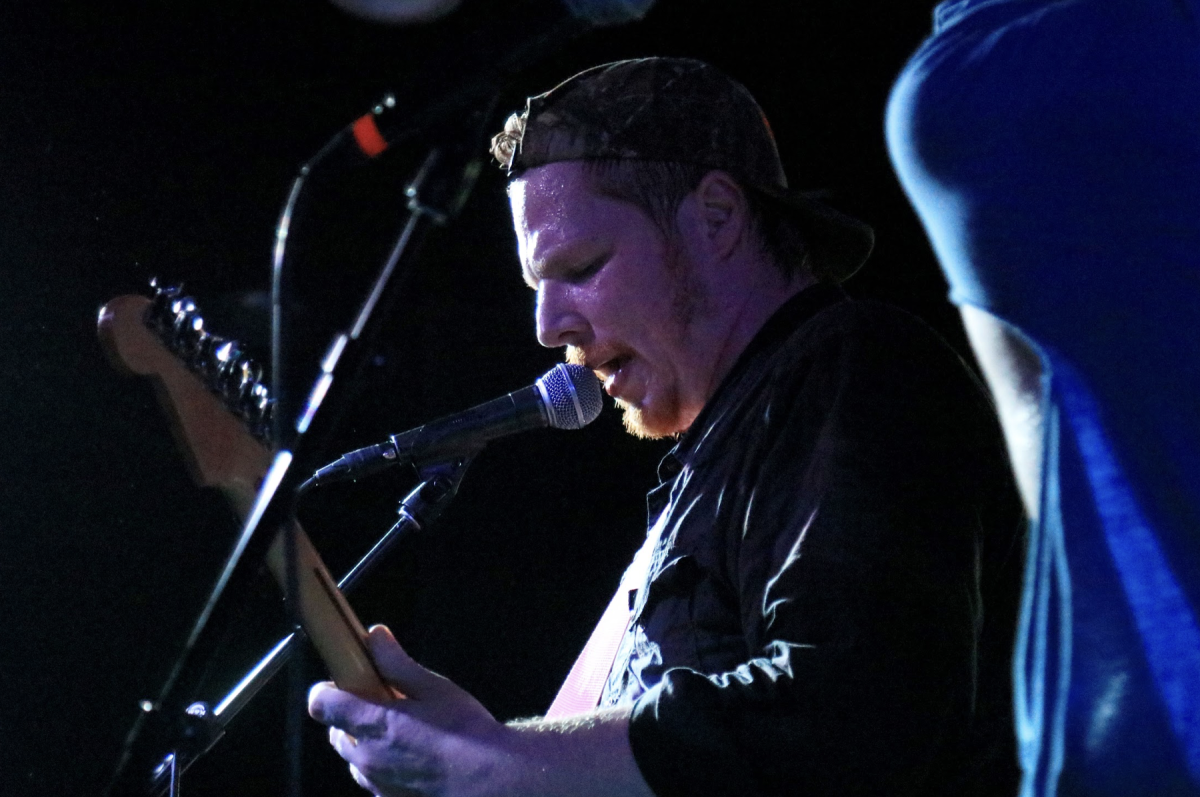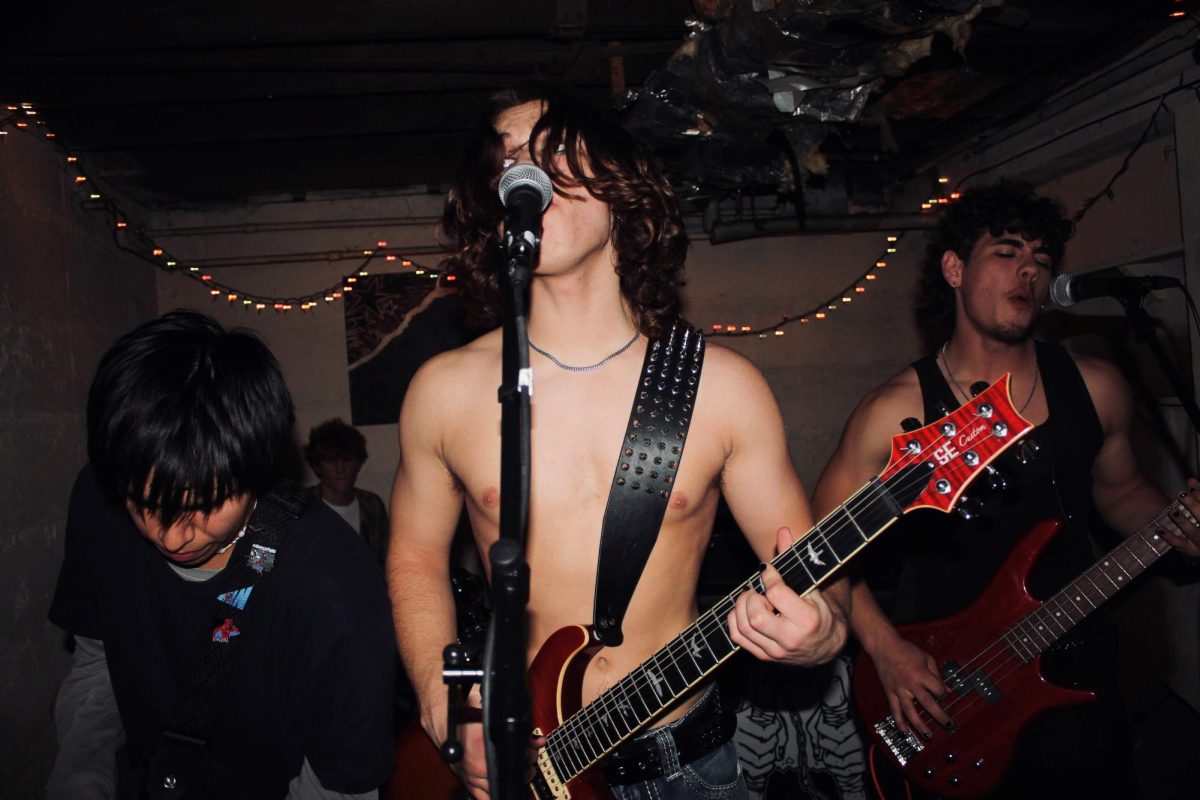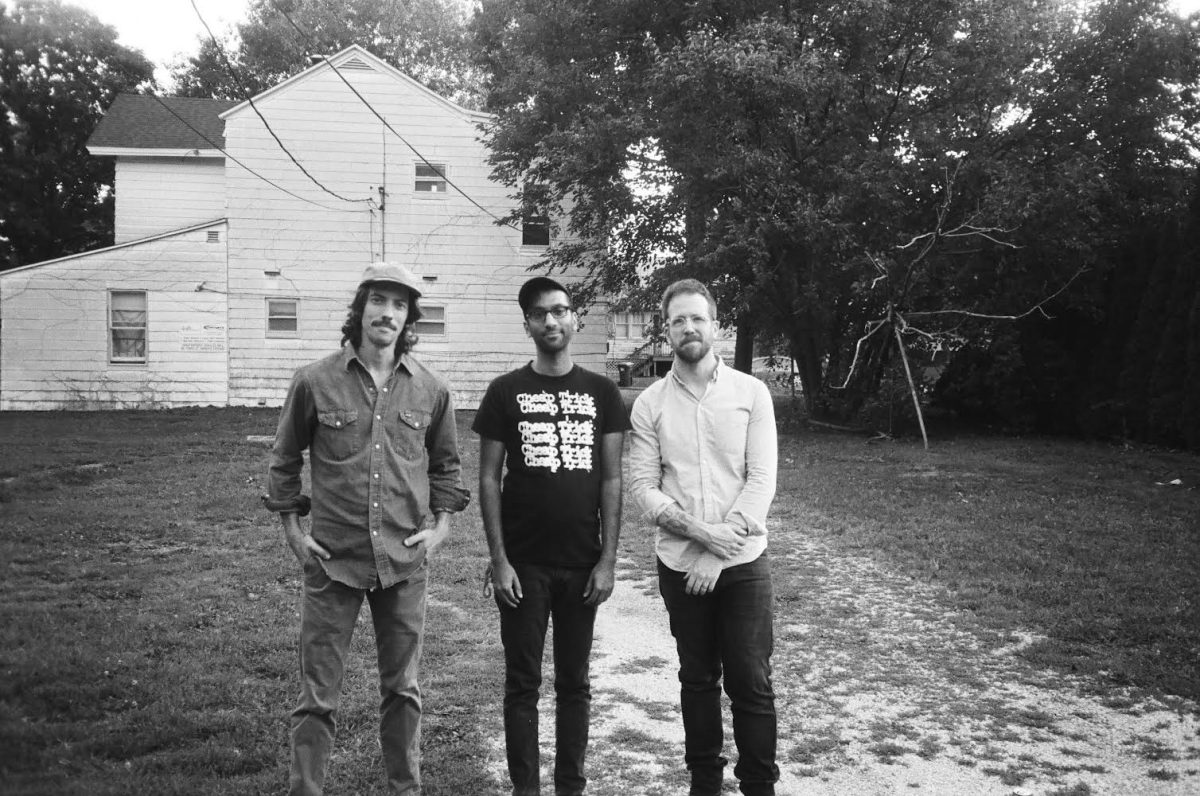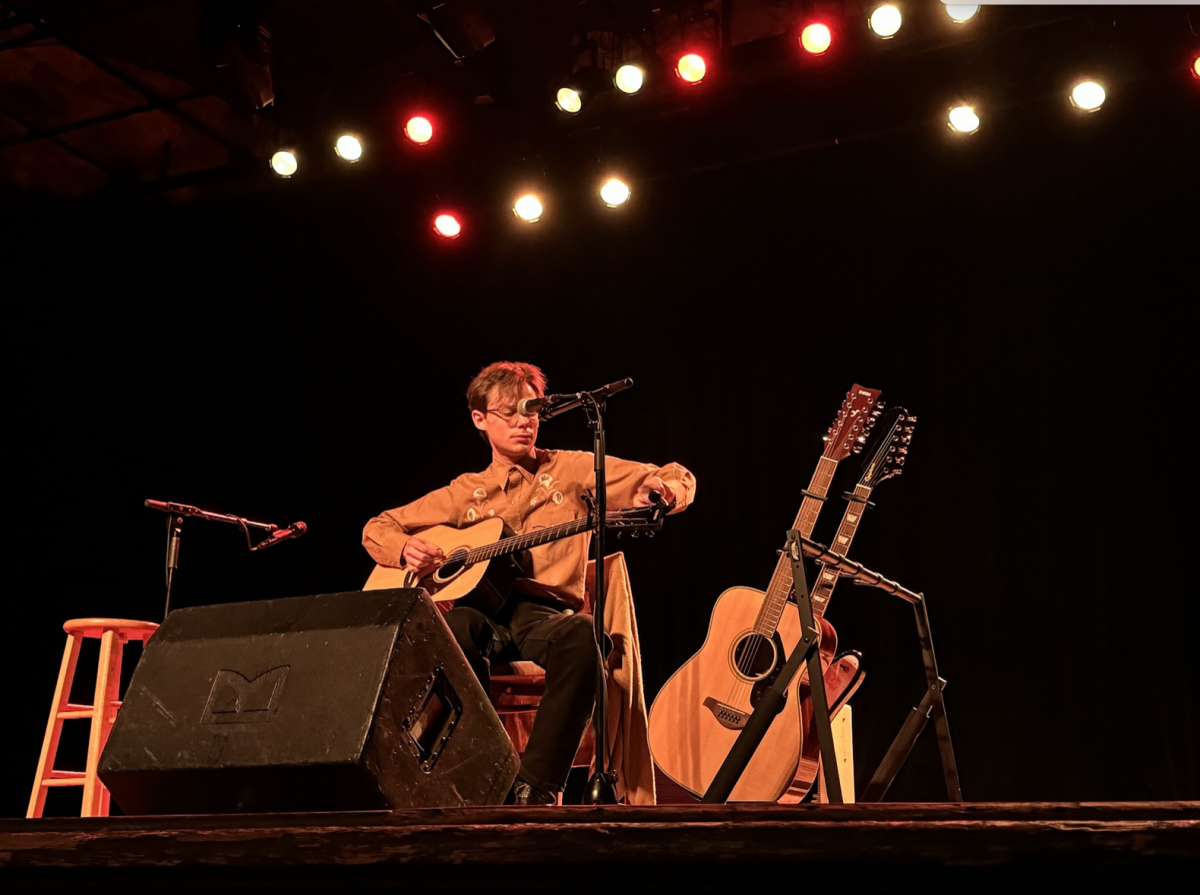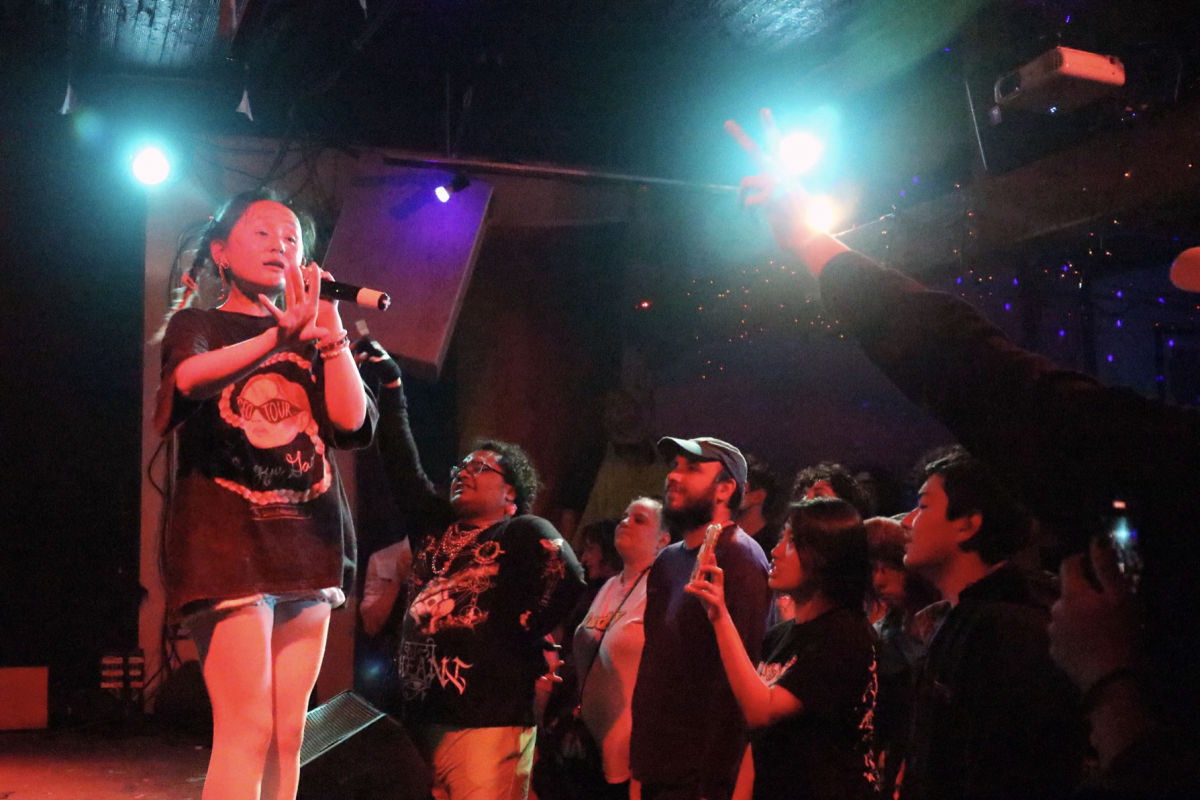On the rainy Thursday evening of March 25th, the MUR Music Department had the chance to catch up with garage rock, power pop trio, Diet Lite. The band is made up of drummer Evan Marsalli, and guitarists, Kelson “Kelso” Kuzdas and Max Niemann. According to the band’s bio on streaming service, Spotify, Diet Lite is a “refreshing, low-calorie way to get your face melted.”
The Soundcloud interview is linked above.
MUR: Would you mind starting out by introducing yourselves? Where are you from and how did you all meet?
Marsalli: I’m Evan, I’m from Hartland- the suburb of Milwaukee- and we all met in college. Me and Kelso met when we were freshman and then me and Max worked together at one point.
Niemann: I’m Max, and I’m from Libertyville, Illinois. I have a funny story about me and Evan — We met at work and that was the seed that planted this band. It might have happened faster- except he got fired like two days after we worked together. The band kind of formed before the band actually formed outside of a party. Kelson and I were both walking up to a party and did not make it into the party because we just sat in the driveway talking about how we should start a band. We had finished our conversation and actually went into the party, but it still took us another half year to actually form the band. That’s what I credit as the start.
Kuzdas: So, I am Kelson. I went to Oshkosh. I’m originally from the Fox Valley area. I grew up in Appleton which is great if you’re over 21, but if you’re under 21, it’s definitely more or less like growing up in a field with nothing in it. Then, I went to Oshkosh and met these guys. The rest is history, I guess.
MUR: We’ve seen a lot of different influences for your music, but we’re just curious, what genre would you describe your music as?
Niemann: It’s always freaked me out because I don’t know what to describe our music as, but we had a nice review written about us by Milwaukee Record and they described it as power pop-influenced garage rock. That was spot on. I liked that.
MUR: I think it’s interesting that you all pull from so many different musical groups. You remind us a lot of Twin Peaks or Parquet Courts. You can emulate a certain style of music so well but still, keep your own original sound. After reading your Spotify bio, we were wondering how you incorporate different influences into your own sound.
Marsalli: While we were filming a music video that is coming out in April, we were talking in the car on the way back from the Third Ward and I was saying how we listen to a ton of different stuff and it goes into your head like a blender, blends it up, and then when you write something it kind of comes out like a smoothie.
Niemann: I haven’t looked at the list that’s on our Spotify- Evan just asked us to list bands that we had liked and it was kind of early on. We all had very distinct music tastes. Now we’re showing each other a bunch of music and it’s morphed into a more cohesive taste. We just listen to a lot more of the same bands than we did from the get-go. I think we were all coming from three different spots musically and it’s been “put in a blender” for a few years now. We are the smoothie.
MUR: I think that idea comes off great in your latest release from March; I really like that album. After listening to your first few albums, you can really tell that your sound has matured. One song that I really liked off the album was “Man Ray” based on how you varied the tempo; it keeps it very exciting. When I listen to Diet Lite, I don’t know what to expect because it is something different every time. You all are very well versed in technical skills, especially in solos in “Metal Mouth.” That being said, we were curious what your writing process was like- especially for that latest album.
Niemann: All over the place.
Kuzdas: I feel like it’s usually one of us who will come up with the general backbone of the song and the rest of it is kind of like having pieces slowly fall into place. People just start figuring out what sounds good and the rest goes from there.
Niemann: It can be a pretty funny process. Evan, our drummer, surprisingly comes up with a lot of our guitar riffs. So he’s like, “Max, play this in a loop,” and I’ll play that while Kelso will be fiddling along with some bass line- I’ll be singing nonsense lyrics.
Marsalli: I think the best way is to come with a little motif- a little thing that sounds cool, little hook, little bass part, little vocal delivery- and just keep building that on the motif. That’s how you do it.
MUR: You mention in your Spotify bio as well that Max and Kelso switch off who is playing the bass and who is playing the guitar when you perform. Do you do this when you’re recording or writing music? How do you write each of those individual parts?
Niemann: The reason why is that when we originally formed the band, we had a bassist and me and Kelso were both playing guitar. Then, the three of us all moved into the same house together our senior year of college and it kind of fizzled out. It was more that we had to have a bassist and both of us were guitarists; so, we both kind of split that responsibility equally as opposed to designating one of us as the bassist. It was out of necessity, but now we’ve turned it into a strength and a unique thing about us. If I write something on guitar, Kelso’s going to be playing bass on it and vice versa. He’s a way better bassist, but I’m actually very proud, I did play the bass on “Metal Mouth” on the record. It took me like 70 takes, but I got it down.
MUR: Since you are not able to play many performances right now as a band, what was your favorite performance that you played prior to the pandemic? What is your favorite venue you have played at?
Marsalli: Linneman’s in Milwaukee- that was a great show in general. It sounded great, we had a great crowd, it’s a nice venue. Linneman’s was super fun.
Niemann: Linneman’s is up there- Jim (the owner) is super cool. There’s an actual green room backstage down there. You don’t really get in the DIY circles of Milwaukee, but that was pretty cool. Loved Bremen too, we played there once or twice. Before we moved to Milwaukee and we were just living in Oshkosh, we were just playing parties.
Kuzdas: There was one show still in Oshkosh at a guy named Eli’s basement. It was just absolutely full to the brim of sweaty people.
Marsalli: I can’t wait to play another house show.
MUR: Yes, I feel like house shows give you the best opportunity to connect with the band. Everyone is on the same level. So besides the venues that you’ve played at, do you have any insight or advice to support venues during the Covid-19 pandemic? What is your perspective?
Kuzdas: Go out there and show some support- within reason. When things kick back off, go to some shows.
Marsalli: If they serve food, order it on DoorDash. Schedule live streams with them.
Niemann: I’m actually down in Chicago and there is a good amount of venues here that served some sort of food before and they’re still doing that now or they’re getting food trucks out in front. It’s kind of hush-hush, but we’re doing something with Cactus Club in the next couple of months. It’s just trying to find ways you can help them out because they help us out.
Kuzdas: Even as much as just plugging them online and supporting the network helps. That’s where the strength of the Milwaukee scene is- it’s in the network. You really can’t just play a show by yourself- you need friendships, you need connections with other bands. So, the same goes with the bars. You can’t play shows without the bars.
MUR: Absolutely. I think you all have been handling the pandemic very well, you have a big social media presence. It’s always nice to know what bands are doing. It’s nice to keep putting out content- especially when you don’t have that live interaction with your fans. How would you say you sustain that connection with the people that support you through your social media presence?
Marsalli: Post every day. Even if it’s something kind of dumb, you just have to put yourself out there.
Kuzdas: I feel like the other part of it also is actually sitting down and doing it. It takes a lot of time and effort, but you need to actually plan it out ahead of time. Don’t scramble at the last minute to get your posts in. Honestly, advice to bands that currently aren’t posting on social media is to capitalize on it because otherwise, you’re going to be left behind.
Niemann: That’s the thing about the pandemic, it immediately made it necessary for a band in our position where we were just starting to get our feet wet in Milwaukee when the pandemic hit. If we want to sustain any momentum, we have to stay in those spaces.
MUR: Something really interesting that we’ve seen you do is a McDonald’s chicken sandwich giveaway. Who’s idea was the giveaway? How did the tradition start?
Niemann: That was Evan’s idea.
Marsalli: I’m always trying to come up with crazy ideas that attract attention. If it attracts the attention in a different way, then people are more likely to be like “oh, these guys are a band- what does their music sound like?”. You kind of draw people in from a different way.
Kuzdas: You get them to buy your personalities, not your tracks. And it just so happens, we have some good tracks.
MUR: Related to social media, do you have any presence on TikTok? We’ve seen so many smaller artists go viral or gain a greater following on TikTok lately.
Niemann: I’ll let Evan tell it, but he’s mildly TikTok famous. It’s the driving force of our social media presence.
Marsalli: I’ve got close to 5,000 followers now. Basically, what I’ve been doing is playing the guitar part at the bridge of Buddy Holly by Weezer for like 287 days trying to get Rivers, the singer of Weezer, to duet the video. So, I’ve gained quite a following and I’ve used that to promote our music a little bit. I post live videos or any other video content that we have on my TikTok. It’s another way to draw people into the music instead of just saying “listen to my music”. Everytime I post a video, it gains more followers because different people see it.
MUR: Has Rivers seen your videos yet?
Marsalli: Here’s the thing, he has definitely seen it because on his website there is a little chat area that has my handle, @evanmars24. I’ve had correspondence with his social media team, he’s liked one of my videos, but he has yet to duet me. I’m going to keep making videos until he duets one of them.
MUR: With the rise of the Black Lives Matter movement this summer and recent events in Atlanta, how have you as individuals aimed to consume media by female artists or artists of color? What artists can you recommend?
Marsalli: We always try to listen to and shout out underrepresented communities. We like to support one of our friends that just did one of our videos in all of his efforts.
Kuzdas: He just released a comic book, actually. It’s by Tyree Pope called “Fair Fight.”
Niemann: It’s definitely important. Looking at the bills we’ve played in the past, it is definitely predominately white and male so that change is something that I’m excited to hopefully see once shows get back and turn around. Especially with a scene like Milwaukee that is pretty diverse but unified, you get genre-mashing bills. Hoping to see that on a larger scale as well.
Kuzdas: I think another really important thing to note that a lot of people don’t think about every day is the fact that most of all musical foundations in America are derived from Black and African American culture. One thing led to blues which led to jazz which led to rock which led to literally every single genre of music that has become popular in America. I’ve been going on a trip this last year learning a lot of blues music- really diving into it. It’s reverence where reverence is due.
Niemann: Something cool that I saw was that Jeff Tweedy, my idol from Wilco, starting now is going to pay five percent of all his songwriting credits as reparations to African American communities just because he’s like ‘I’m a rock and roller, I didn’t invent this, and I owe my livelihood to this population, so I’m going to pay them back.’
MUR: Along the same vein of emphasizing underrepresented voices, are there any newer artists that you would recommend in the Milwaukee music scene or beyond?
Marsalli: Disq and Shoobie. Disq is from Madison. They’re literally so good. I remember listening to their album and clicking and liking every song to my library.
Niemann: I’m going to plug all our friends. Go listen to Shoobie. Go listen to Tacoma Washington Weekday Club, Solar Plexus, Howard Grove, Floral Friday, Horace Green, Tiny Voices, and Courting- they’re from England.
MUR: It seems like you have a lot of friends in the music scene and a lot of people you want to support. So, how would you describe the Milwaukee music community?
Marsalli: It’s kind of scrappy. Max can probably speak more to the Chicago scene where it’s more developed. Milwaukee is just kind of putting together shows and lots of stuff going on.
Niemann: I’m not shooting down the Chicago scene at all, but it is just such a bigger scene that the punk bands play with the punk bands, the metal bands play with the metal bands, the rappers play with the rappers. Milwaukee is a little more contained- more genre-mashing bills- which is super cool. We’re just really starting to get into the Milwaukee music scene cause we’re an Oshkosh band. We were just really starting to dig our teeth into the Milwaukee music scene and then Covid happened.
Marsalli: I feel like we were just about to hit that exponential curve. However, we would not have been able to record the album- there’s kind of a silver lining. We’ve got music out now, and we’ve really established our social media presence in a way that we wouldn’t have. It just kind of leveled the playing field for us because no one was able to play shows.
MUR: With Max in Chicago and Evan and Kelso, you guys are living together in Milwaukee, how has that impacted your ability to work closely as a band?
Niemann: I just drive a lot. We all graduated college in Spring of 2019 and then I moved back with my parents to Libertyville- a suburb of Chicago- and I was playing with two other bands in Chicago at the same time. One of those bands, I’ve since left, the other one, I’m living with now. We’re kind of getting the ball rolling again. It was my high school band and we were all spread all over the country for college, so now we’re back together doing that. This has just been what’s happening in the last year, spending a lot of time driving up to Milwaukee.
MUR: In the spirit of the McDonald’s chicken sandwich- if you were a sandwich, what sandwich would you be and why?
Kuzdas: I think I would be a BLT. It’s a solid sandwich.
Niemann: I don’t eat sandwiches anymore, I just discovered I can’t eat the bread anymore.
Marsalli: You’re the unwich.
Niemann: Yeah, that’s what I get from Jimmy John’s, I get the unwich, the lettuce wraps. So I guess I’ll take a number ten unwich from Jimmy John’s.
MUR: What about Evan?
Marsalli: The spicy Italian.
Kuzdas: Aw, I was left out of this Jimmy John’s craze, here.
Marsalli: There’s a BLT at Jimmy John’s.
Kuzdas: It’s not the same.
MUR: Thank you all so much for joining us. Do you have any last words or anything you want to promote before we sign off?
Marsalli: Our album is Covid-free. It was approved by a doctor to be Covid-free. It’s also free if you have the vaccine, so if you send us proof that you have the vaccine, we’ll send you a download code from Bandcamp.
Niemann: Yeah, the album is out. It’s called “Seems To Be The Way It Tends To Go.” Check it out. We have a lot of music videos coming out. We have a lot of comedy coming out. Follow us @dietlitemusic on Instagram and you won’t regret it.
MUR: We look forward to it, can’t wait to see those music videos too. Thank you so much, Diet Lite!
This article is written by Emily Bittman. She can be reached at emily.bittman@marquette.edu

